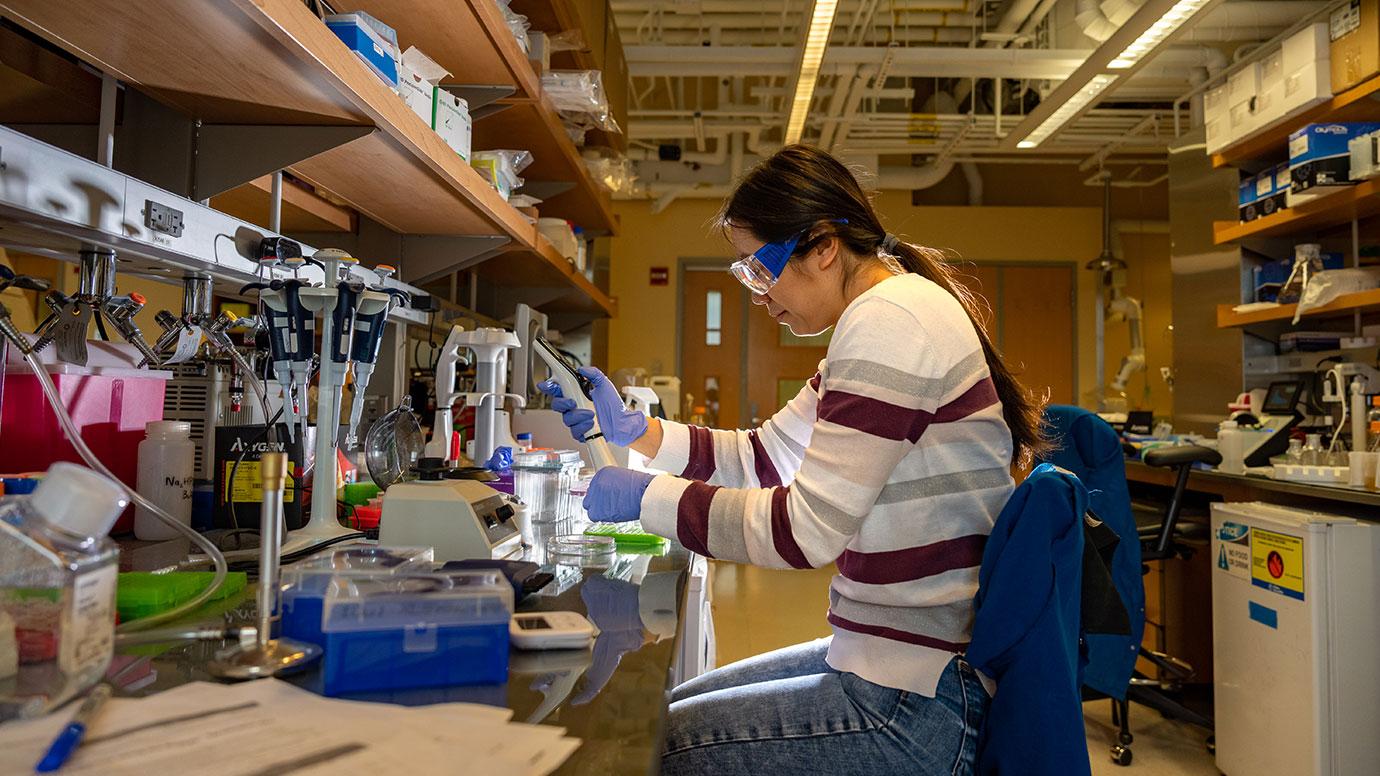
Researchers Invent Compact CRISPR System But More Potent and Precise
July 27, 2023| |
University of Chicago scientists led by chemist Weixin Tang have created new CRISPR systems that are smaller and can easily slip into cells yet retain their potency. Tang's team hopes that these systems could someday pave the way toward improved therapies for diseases such as sickle cell disease, Huntington's disease, cystic fibrosis, and muscular dystrophy, among many others.
Tang and her lab started with the CRISPR-Cas12f system that was invented by others and was impressively small but did not always work very well once it got into cells. To boost the performance of CRISPR-Cas12f, they looked at the protein as they thought the system's flawed performance might be because its protein wasn't clamping onto the DNA inside the cell. The group experimented with different mutations and found five that, when combined, boosted the proteins' activity.
The team also looked at the RNA part of the system using cryogenic electron microscopy. They were able to reduce the RNA size by about a third, which according to the team is "a significant shortening." The team also found that it performs its functions just as well as the original, and was significantly more potent and precise when the final version was tested.
For more details, read the article in UChicago News.
| |
You might also like:
- Researchers Discover a New Type of CRISPR Gene Scissors
- CRISPR-Cas12f1: A Mini Genome Editing Tool
- Another CRISPR Tool Shows Great Potential to Advance Science
Biotech Updates is a weekly newsletter of ISAAA, a not-for-profit organization. It is distributed for free to over 22,000 subscribers worldwide to inform them about the key developments in biosciences, especially in biotechnology. Your support will help us in our mission to feed the world with knowledge. You can help by donating as little as $10.
-
See more articles:
-
Plant
- ISAAA Inc. Empowers Filipino Students to Become Future Biotech Influencers
- GE Rice Linked with Hunger, Health, and Climate Resilience
- COGEM Concludes Import of MON89034 x 1507 x NK603 Maize Does Not Pose an Environmental Risk in the Netherlands
- ISAAA Inc. to Hold ASCA6 on September 11-15 in Indonesia
-
Food
- Experts Tackle Big Questions on Gene Editing and the Future of Food
-
Health
- CRISPR Will be Used to Develop Genetic Medicines for Sickle Cell
- Researchers Invent Compact CRISPR System But More Potent and Precise
-
Environment
- Report Shows Potential Growth for GMO Testing Market
-
Read the latest: - Biotech Updates (January 21, 2026)
- Gene Editing Supplement (December 17, 2025)
- Gene Drive Supplement (February 22, 2023)
-
Subscribe to BU: - Share
- Tweet

